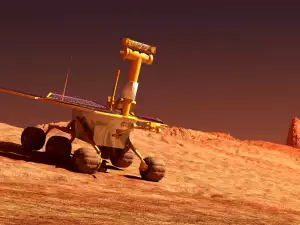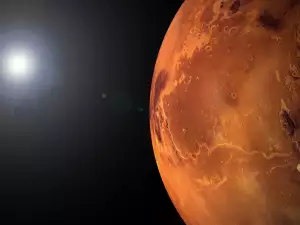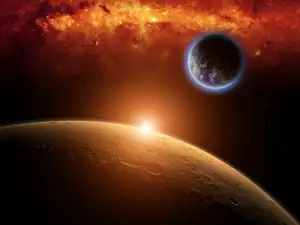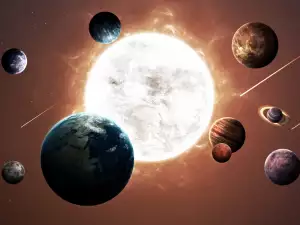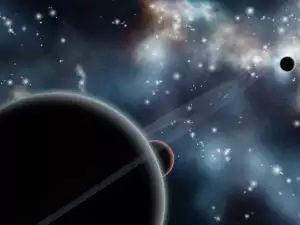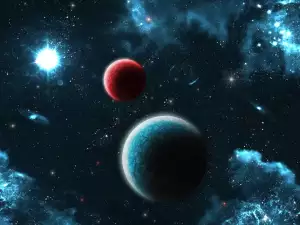NASA's space telescope Kepler has found a planet, whose conditions for life are extremely similar to Earth's. According to experts, this quite likely means that the planet is habitable.
The newly found celestial body, Kepler-452b, orbits a star similar to our own Sun and is located at a distance from it which is approximately the same as that from Earth to the Sun.
"Kepler-452b is the 1st discovered exoplanet for which there is a very real possibility for it to be habitable. The celestial body is likely rocky and may even be harboring extraterrestrial intelligence, " says Jeff Coughlin from the SETI institute in Mountain View, California.
So far there have been a number of exoplanets found but they're orbiting around red dwarfs, due to which the temperatures on the surface are way too low to allow for intelligent life to exist on them.
The conditions on Kepler-452b, however, look to be quite similar to Earth's. The difference is that the planet's diameter is 60% larger than Earth's, which is why scientists call it a Super-Earth.
It's likely for the planet to have a denser atmosphere, contain more water and more active volcanoes. The exoplanet takes 385 days to complete a full orbit around its star, making its calendar year longer than ours.
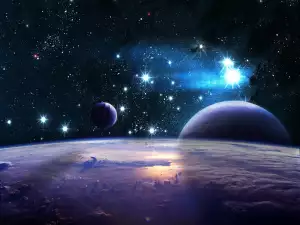
It's also theorized that Kepler-452b is 20% brighter than Earth, its age around 6 billion years, making it even older than our Sun, which is 4.5 billion years old.
NASA classifies this planet as one of its most significant discoveries since the Earth twin may be the 1st one found to contain life and may mean first contact with extraterrestrials in the near future.
The Kepler telescope has found 4700 potential exoplanets but only 1030 of them have actually been confirmed.
"The more exoplanets scientists find, the greater the odds for us finding extraterrestrial intelligence in the future and colonizing new worlds, " says NASA.


